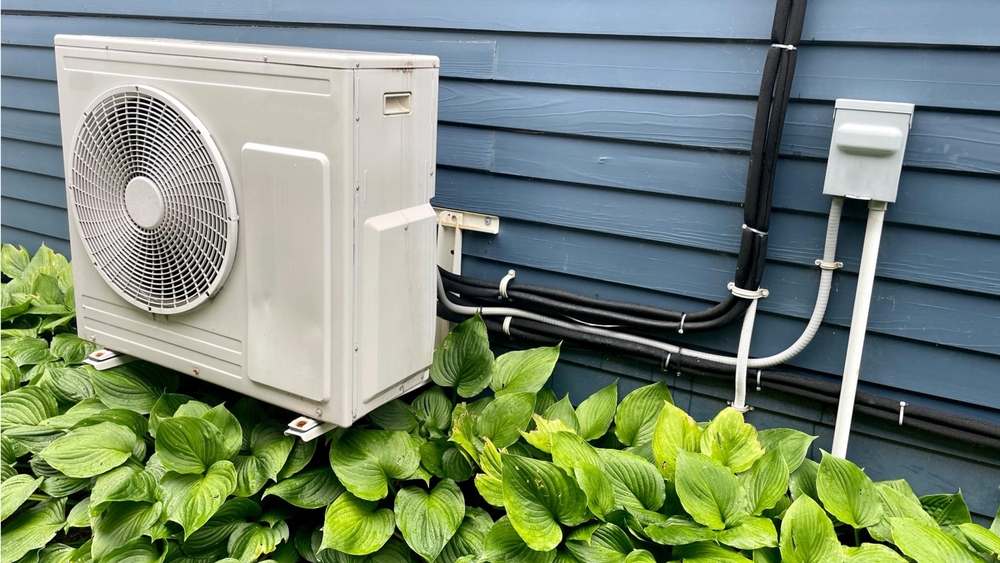Are Heat Pump Systems Efficient?

As energy efficiency becomes an increasingly important factor in our homes and businesses, exploring and understanding different heating and cooling options is essential. One such option that has gained considerable popularity in recent years is the heat pump system. With the potential to provide both heating and cooling, heat pump systems offer a versatile and efficient solution for maintaining a comfortable indoor environment. This blog will discuss whether heat pump systems are truly efficient and investigate the various factors contributing to their effectiveness. By the end, you will have a comprehensive understanding of heat pump systems and will be able to make an informed decision for your heating and cooling needs.
What is a Heat Pump System?
Before delving into the efficiency of heat pump systems, it is crucial to comprehend how they work. In simple terms, a heat pump is a device that transfers heat from one location to another. Unlike traditional heating and cooling systems that generate heat or cool air, heat pumps extract heat from the air outside during winter and reverse the process during summer to provide cooling.
To accomplish this heat transfer, heat pump systems consist of three main components: an outdoor unit, an indoor unit, and a refrigerant. The outdoor unit absorbs heat from the outside air, even in cold temperatures, and transfers it indoors using a refrigerant. The indoor unit then distributes the heat through the space or exchanges it with the air-conditioning system to provide cooling. A heat pump system acts as a heat transporter, utilizing nature’s heat instead of relying predominantly on electrical resistance or burning fossil fuels.
Factors Affecting Heat Pump Efficiency
To assess the efficiency of heat pump systems, it is crucial to consider various factors that impact their performance. Let’s look at some key considerations:
- Climate: One of the significant factors influencing heat pump efficiency is the climate in which it operates. Heat pumps can deliver impressive energy savings in moderate climates with mild winters and summers. However, heat pumps may struggle to extract sufficient heat from the outside air in extremely cold climates, resulting in less efficiency during winter. Nevertheless, advancements in heat pump technology, such as the introduction of hybrid systems that combine heat pumps with alternative heating methods, have overcome this limitation to some extent.
- Size and Capacity: Proper sizing and capacity of a heat pump system are crucial for maximizing its efficiency. An undersized or oversized heat pump can lead to reduced efficiency, increased energy consumption, and potential performance issues. Consequently, it is imperative to have a professional HVAC contractor assess your specific needs and recommend the appropriate size and capacity for your heat pump system.
- Insulation and Air Sealing: The overall efficiency of a heat pump system is heavily influenced by the insulation and air sealing of your home or business premises. High-quality insulation and proper air sealing ensure minimal heat loss during winter and prevent heat infiltration during summer, allowing the heat pump system to maintain the desired indoor temperature more efficiently.
Benefits of Heat Pump Systems
Now that we have examined some factors affecting heat pump efficiency, it is essential to highlight the many benefits these systems offer:
- Energy Efficiency: Heat pumps primarily use electricity to transfer heat, making them more energy-efficient than traditional heating and cooling systems. This energy efficiency reduces utility bills, especially when paired with other efficiency measures, such as insulation and air sealing.
- Versatility: Unlike standalone heating or cooling systems, heat pumps can provide both heating and cooling capabilities, allowing you to maintain a comfortable indoor environment year-round. This versatility eliminates the need for separate systems, saving space and reducing installation and maintenance costs.
- Environmentally Friendly: Heat pumps significantly reduce greenhouse gas emissions since they harness renewable energy sources, such as heat from the air or ground, instead of burning fossil fuels.
- Consistent Comfort: Heat pump systems provide consistent heating and cooling, as they do not rely on on-and-off cycles like traditional systems. This continuous operation ensures a more balanced and comfortable indoor environment.
- Durability and Lifespan: Heat pump systems are designed with longevity in mind and have a longer lifespan compared to many other heating and cooling systems. Regular maintenance can further extend their life expectancy.
Contact Us Today
Are you considering upgrading your heating and cooling system to a more efficient solution? At PlumbSmart, we are a trusted HVAC provider that offers a wide range of heat pump systems that can cater to your specific needs. With our professional expertise, we can guide you in selecting the most suitable heat pump system, ensuring optimal efficiency and comfort in your home or business. Explore our offerings and schedule a consultation with our experienced team.
